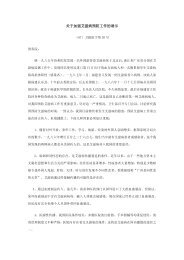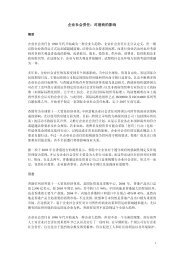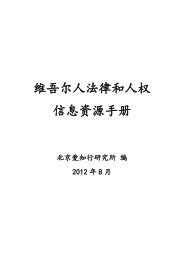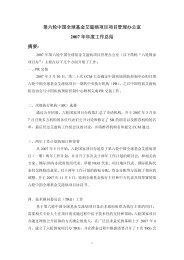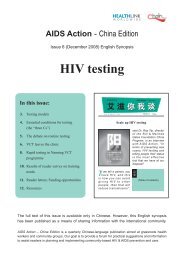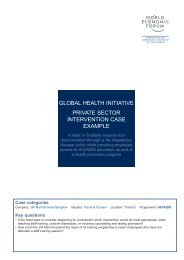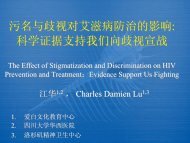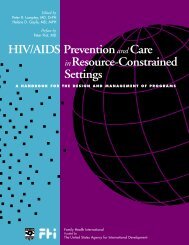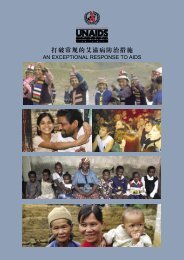The Training of Trainers Manual - UNFPA
The Training of Trainers Manual - UNFPA
The Training of Trainers Manual - UNFPA
Create successful ePaper yourself
Turn your PDF publications into a flip-book with our unique Google optimized e-Paper software.
This publication was made possible through a contribution from the United Nations Population<br />
Fund (<strong>UNFPA</strong>) and the Joint United Nations Programme on HIV/AIDS (UNAIDS) Unified Budget<br />
Workplan, with separate funding from the U.S. Agency for International Development (USAID) to<br />
Family Health International (FHI)/YouthNet, and with support from the World Health Organization<br />
(WHO)/ Europe.<br />
<strong>The</strong> opinions expressed in this document do not necessarily reflect the policies <strong>of</strong> <strong>UNFPA</strong>, UNAIDS,<br />
or WHO/Europe. <strong>The</strong> principles and policies <strong>of</strong> each <strong>of</strong> these U.N. agencies are governed by the<br />
relevant decisions <strong>of</strong> each agency’s governing body, and each agency implements the interventions<br />
described in this document in accordance with these principles and policies and within the scope <strong>of</strong><br />
its mandate.<br />
<strong>UNFPA</strong> is an international development agency that promotes the right <strong>of</strong> every woman, man, and<br />
child to enjoy a life <strong>of</strong> health and equal opportunity. <strong>UNFPA</strong> supports countries in using population<br />
data for policies and programmes to reduce poverty and to ensure that every pregnancy is wanted,<br />
every birth is safe, every young person is free <strong>of</strong> HIV/AIDS, and every girl and woman is treated<br />
with dignity and respect.<br />
<strong>The</strong> Y-PEER Programme has worked since 2001 with country partners to build the capacity <strong>of</strong><br />
national non-governmental organizations and governments to implement, supervise, monitor, and<br />
evaluate peer education programmes to prevent HIV/AIDS and improve reproductive health. <strong>The</strong><br />
Y-PEER initiative has been spearheaded by <strong>UNFPA</strong> in partnership with FHI/YouthNet, the United<br />
Nations Children’s Fund (UNICEF), and others. Y-PEER, launched in 27 countries <strong>of</strong> Eastern Europe<br />
and Central Asia, is now spreading to other regions <strong>of</strong> the world, including the Arab states, Africa,<br />
and Latin America.<br />
YouthNet is a five-year programme funded by the U.S. Agency for International Development<br />
(USAID) to improve reproductive health and prevent HIV among young people. <strong>The</strong> YouthNet<br />
team is led by FHI and includes CARE USA and RTI International. This publication is funded in part<br />
through the USAID Cooperative Agreement with FHI for YouthNet, No. GPH-A-00-01-00013-00.<br />
<strong>The</strong> information contained in the publication does not necessarily reflect FHI or USAID policies.<br />
United Nations Population Fund and Youth Peer Education Network (Y-PEER)<br />
220 East 42nd Street, 18th Floor<br />
New York, NY 10017, USA<br />
Family Health International/YouthNet<br />
2101 Wilson Boulevard<br />
Arlington, NC 22201, USA<br />
© 2005 by the United Nations Population Fund<br />
ISBN: 0-897-14759-6



